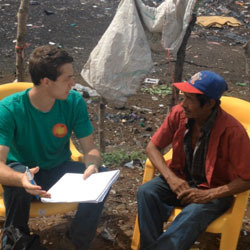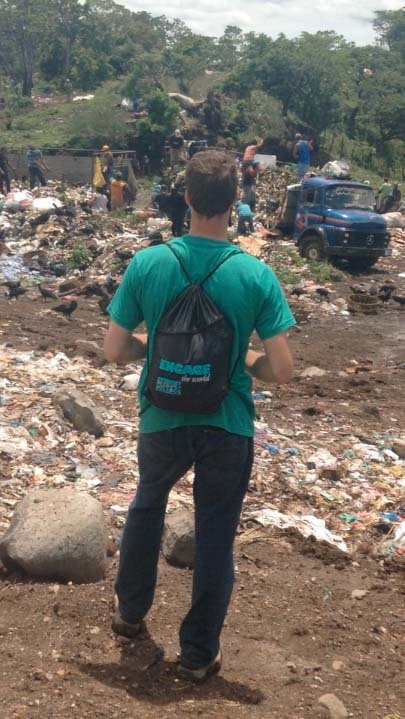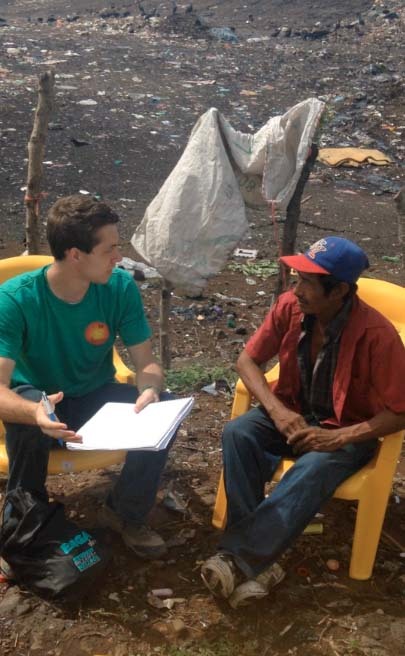

Mark Brahier, a senior biological sciences major and international development studies minor, spent five weeks in Nicaragua this summer. Traveling with International Samaritan on his fourth trip to Central America, Brahier set out to study social, political, economic, and geographic barriers to healthcare access.
“As a student studying biology and international development, this research project was a great way to show how all of my interests intersect, since it is very interdisciplinary,” Brahier said. “When I arrived in Nicaragua, I quickly realized there were more important areas of research to explore and changed the focus of my project.”
Ultimately, Brahier’s research specifically focused the economic barriers to healthcare and examined how changing incomes affect health care access for residents of garbage dump communities. Residents of these communities use garbage dumps as a source of income by rummaging through the trash looking for recyclable items that can be brought to recycling facilities in exchange for money. Income for residents in the garbage dump communities is entirely dependent on what is thrown away.

With funding from the Kellog Institute for International Studies, Brahier spent five weeks studying communities around La Joya, a garbage dump located on the outskirts of Granada, Nicaragua. His research included two major components that examined the health care and economic characteristics of the garbage dump community. Part one of his research consisted of a quantitative survey that looked at the medical history and common diseases that residents of Granada face. The goal of the survey was to determine if there was a difference in disease burden between the residents in the city, rural areas around Granada, and those living right outside of the garbage dump.
The second part of his research focused on interviews to determine which barriers to healthcare were present in the community. These interviews were conducted with healthcare professionals in public and private hospitals, government officials, hospital administrators, and even taxi drivers who could discuss to the difficulties of accessing a doctor. Brahier also interviewed approximately half of the workers in La Joya to learn about their demographics, income, and spending prioritization.
After analyzing the results of over 140 interviews and surveys, he found that the consequences of the global sustainability movement could be significantly impacting the workers of La Joya.“The incomes for the La Joya garbage dump workers have significantly decreased in the last five years,” Brahier explained. “Each year, the workers are losing an average of 30-40 percent of their income. Fewer recyclables are being thrown away because people have a financial incentive to recycle items at recycling facilities. As we try to become a more sustainable society, we are throwing away fewer and fewer recyclables. As a result, we are not realizing that our sustainability efforts are having an unintended consequence and are impacting the poorest of the poor.”
Brahier is currently working on a senior thesis with his research adviser Rahul Oka, assistant professor of anthropology, and plans to conduct further research next summer. “Our hope is to take the trends we observed in La Joya and see if we can apply them to larger garbage dump communities elsewhere.”
When reflecting on the connection between his research and his experience as student in the College of Science, Brahier said, “My science education at Notre Dame has pushed me to think critically. I’ve learned that I should never just take what’s there on the page, but that I need to find ways to apply it to the bigger picture. That is exactly what I did this summer.”